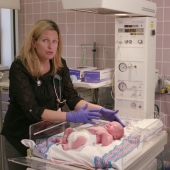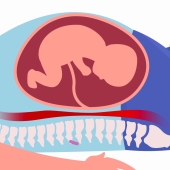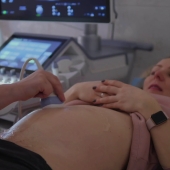This study, from researchers at the Universitat Autonoma de Barcelona and Leiden University and published in Nature Neuroscience, looked at the brain scans of women before they became pregnant, soon after they gave birth, and two years later, to see how the brain changed.
Pregnancy reduces grey matter in specific parts of a woman's brain, helping her bond with her baby and prepare for the demands of motherhood. Scans of 25 first-time mums showed these structural brain changes lasted for at least two years after giving birth.
The results were remarkable: loss of gray matter in several brain areas involved in a process called social cognition or “theory of mind,” the ability to register and consider how other people perceive things.
Changes were so clear that imaging results alone could indicate which women had been pregnant. The researchers said they did not yet know what was being reduced in size: neurons, other brain cells, synapses or parts of the circulatory system.
The grey matter changes occurred in areas of the brain involved in social interactions used for attributing thoughts and feelings to other people - known as "theory-of-mind" tasks.
Pregnancy is characterised by extreme surges of sex hormones and involves drastic physiological and physical changes in the body, the researchers say. During those nine months, women experience a flood of oestrogen which is greater than for the whole of the rest of their lives.
Brain Behavior During Pregnancy:
- Neural network changes possibly to prepare for bonding
- Sparking mother's intuition
- "Is my baby in danger?"
- Evolutionary adaptation to motherhood
- No similiar changes in father's brain
New Mother Brain Changes May Be Hormone Related:
- Affects areas controlling social cognition
- Allows adaption to motherhood
- Facilitates bonding with newborn
- No memory changes detected
- 959 views













